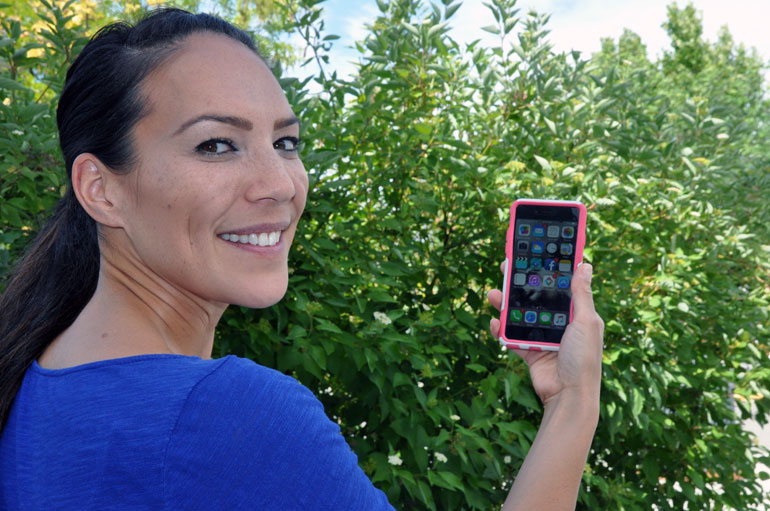
Mary Jung
When fitness apps include personal touches such as individualized goals and contact with a ‘real live trainer’, users tend to exercise more consistently, a UBC study concludes.
Mary Jung, an assistant professor in UBC Okanagan’s School of Health and Exercise Sciences, recently completed an eight-week study that examined the effectiveness of fitness apps.
“More than ever before, mobile apps provide an opportunity to provide real-time feedback and support to the public and specialized health populations,” says Jung.
“In order for app users to reach their full potential, we need to ensure that they stay engaged and are provided with the best support.”
In her study, Jung worked with a fitness app company to incorporate goal setting, personalized feedback and opportunities for self-monitoring and self-evaluation—all key elements of health behaviour change. Activity levels were compared between those who had use of the app compared to those who did not.
Jung found that that not only did the test subjects use the app for the duration of the study, they exercised more. This is in comparison to the group that did not use the app and who showed no change in their exercise bouts.
“There are more than 150,000 mobile fitness apps that are designed to get people moving, yet few Canadians are actually meeting Canada’s physical activity guidelines,” says Jung. “Technology, such as apps, have the potential to assist in improving physical activity levels, but they must be based on sound health behaviour change evidence for this to work.”
According to Statistics Canada, about seven per cent of Canadian children are meeting activity guidelines that call for 60 minutes a day of moderate-to-vigorous exercise. For adults, who are recommended to undertake at least 150 minutes of moderate-to-vigorous exercise each week, that rate is 15 per cent.
Jung’s study—the first of its kind to combine psychology and technology to encourage people to exercise more—was recently published in the Journal of Medical Internet Research. To find out more, visit: mhealth.jmir.org/2016/2/e62
This research was funded by the Michael Smith Foundation for Health Research
—30—